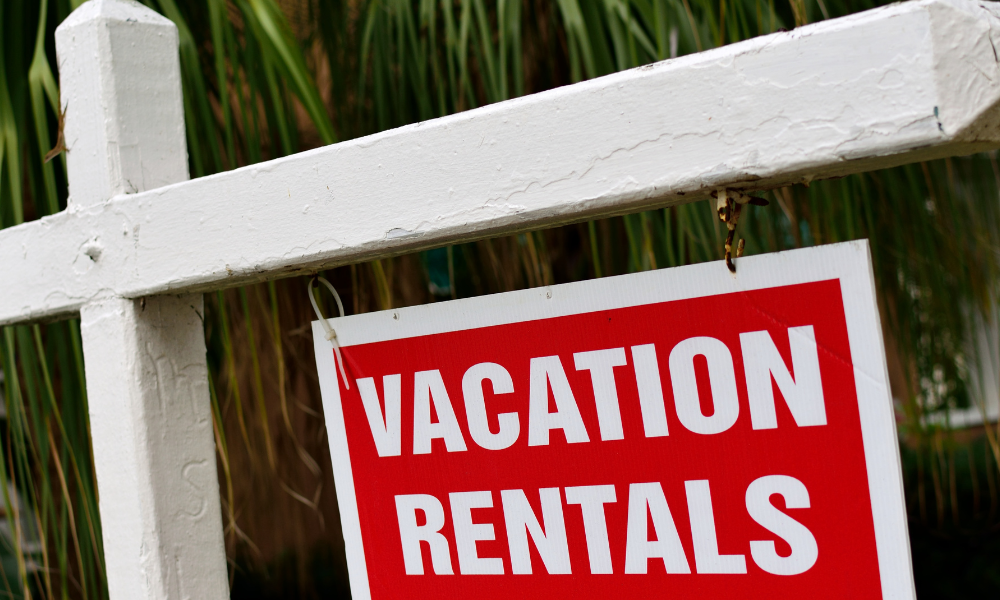A quick summary
An investment property can come in different forms, and this can include vacation rental properties. These properties can seem like an attractive option for those who enjoy going on vacation in a particular area, however there are some risks. So, is it smarter to buy a vacation home or rent?
Jump To
When it comes to real estate investing, those who are looking at investing in short-term rentals to generate rental income may be considering buying vacation properties. However, what about simply renting instead? In areas where short-term rental occupancy rates are high, real estate investors may be tempted to purchase a vacation rental property to use and then rent out to make a profit from rental income during the times when they aren’t using it. For cash-strapped investors however, is this worth it?
We’ll take a closer look at the benefits and drawbacks to each strategy so that you can make an informed decision on whether it’s smarter to buy a vacation home as an investment property or rent.
Buying vs Renting
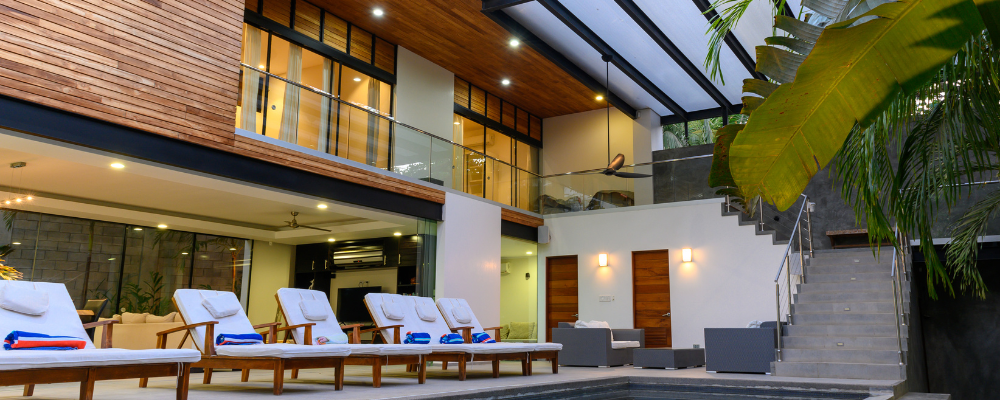
Let’s say that you’ve gone on vacation to Maui, Hawaii and you fell in love with the island. You decide that you’d like to vacation here more often, and you begin looking into buying vacation rental properties as investment property, with the idea of renting your vacation home out, for the times that you’re not using it.
This can be a great way to generate a rental income in areas such as Maui, where the vacation rentals market is booming. However, there are some disadvantages to purchasing a property of this nature, which can significantly deter investors.
Advantages of buying a vacation rental property
- Real estate appreciation: One of the biggest advantages to buying vacation rental properties is that you’re investing in a piece of real estate which is likely to appreciate in value over time. Instead of spending thousands of dollars on a getaway each year, you can own a property and appreciate the area whenever you want to, without having to spend more on accommodation.
- Generate rental income: The other big benefit to buying vacation rental properties is the opportunity to generate rental income. If you choose a vacation home that is situated in a bustling short-term rental market, this can generate a passive income for the long term. This money can be used to pay for the property’s mortgage and maintenance.
- Tax deductions: There are various tax deductions that rental property owners can take advantage of. These include mortgage interest deductions, property tax deductions and home equity loan interest savings. These tax breaks are dependent on how much the home is rented out per year, so it’s important to check the ins and outs before purchasing.
- Convenience: Owning a vacation home is convenient and saves a lot of time. Being able to pack up and go to a home that you own is simply easier than having to arrange accommodation. Staying in a home that you own is more familiar and comfortable, and it also creates a space for hosting and relaxing.
- Retirement plan: Owning a vacation home gives investors a retirement plan. This investment can be used later in life, either to live in, or to sell and use the money for retirement. A second home is a good way to prepare for retirement by investing in an appreciating asset that can generate a rental income, which can pay off the mortgage.
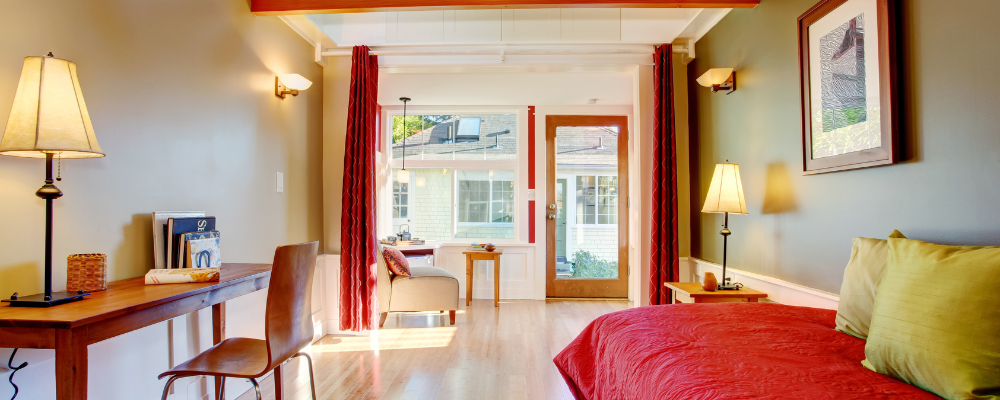
Disadvantages of buying vacation rentals
- Expensive investment: There are no two ways around it, buying property is an expensive affair, and a vacation home is a costly purchase. Aside from this, vacation homes also require maintenance which is something the owner will be responsible for. So, it’s a big investment which requires careful planning and budgeting.
- Financing difficulties: It’s more difficult to get financing for a vacation rental thanks to the more stringent mortgage requirements. A higher credit score and larger down payment are often required to qualify for a mortgage. Add to this the higher interest rates that come with a second property purchase, and you’re looking at a more difficult financing experience than purchasing a primary residence.
- Property management: Purchasing a vacation rental means that you’re renting it out to generate rental income. However, this means that guests will need to be found, the property will need to be cleaned between guests, rental income will need to be received and more. So, the property will require management and if investors don’t have the time for this, a property manager will need to be hired. This is another expense that could add up to 15% of the rental income.
- Rules and regulations: Each state and city within the state has its own rules and regulations around vacation homes. It’s vital to know the state, city and HOA rules about short-term rental properties before purchasing in a particular area.
- Repetitive vacations: Going on vacation to the same place can get old and perhaps boring for some people after a while. In this case, investors may not end up using the vacation home as much, and it can end up becoming purely a short-term rental property and less of a vacation home for the investor.
- Rental income not consistent: Rental income is often dependent on the season or certain times of the year. Which means that there are often times when a vacation property won’t be occupied, and rental income could decline during these times. Vacation property rental income is directly impacted by the destination and its popular times, which impacts an investor’s pocket.
Renting vs Buying
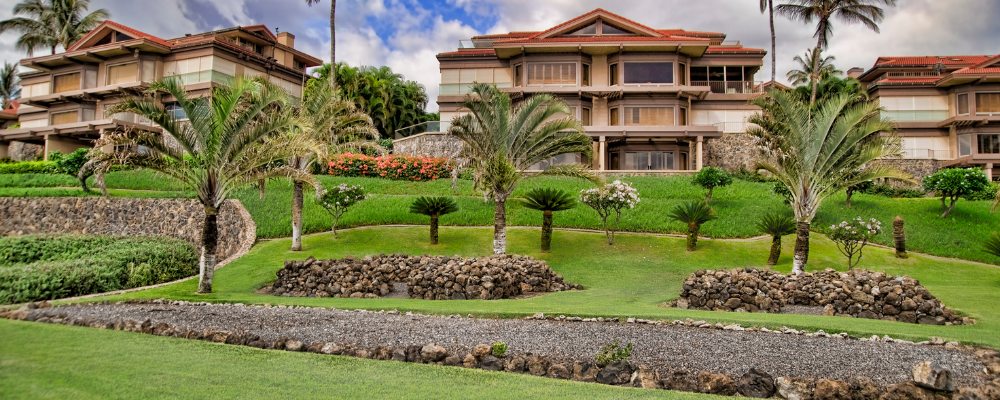
For those who would like access to a vacation home, but aren’t sure about purchasing one, renting may be a better route. We’ll take a look the pros and cons of renting a vacation home, instead of buying, so that investors can weigh up whether this is a better option for them.
Advantages of renting a vacation home
- Very little responsibility: For those who choose to rent vacation homes instead of buying them, they are only responsible for making sure that they leave the home the same way they found it, by the end of the vacation. None of the property maintenance or utilities fall onto a short-term renter to take care of, which means that they can simply enjoy their holiday and leave the home at the end.
- Variety of options: Renting vacation homes means that you can rent a different home everywhere you go. You won’t be limited to revisiting the same place where your vacation home is, if you had bought it. Instead, you can change locations each time you go on vacation, and there are a variety of options when it comes to types of vacation homes and property features.
- More affordable: Renting a vacation home can be an affordable way to go on various vacations in many areas. This can be a cheaper option than purchasing a vacation home and having to deal with renting it out to recoup costs.
Disadvantages of renting vacation homes
- Not your space: A vacation home that you’re renting just isn’t your home, so it’s never quite as comfortable as staying in a place that you own. There may be features missing, or aspects to the home that you don’t like or aren’t convenient.
- Availability: Vacation homes often need to be booked well in advance during peak seasons. Availability can be a problem if you book too late or the area is very popular, and this can impact your ability to go to certain places. Whereas owning a vacation home provides you with a permanent accommodation option.
- No real estate investment: Naturally, renting vacation homes instead of purchasing one means that you are not investing in real estate. You will therefore miss out on the rental income that you could earn from this, and don’t enjoy the benefits of staying in your very own vacation home regularly.
- Inconvenient: Renting vacation homes is an inconvenience, with having to choose the home, make sure that it’s available and then arrange to stay there. If anything is accidentally broken during your stay, you’ll also be liable to cover it then. Purchasing a vacation home instead of renting it saves time and offers a lot of convenience.
Is it cheaper to rent or buy a vacation home?
Purchasing a vacation home costs a significant amount more than renting one. Split over many years, the mortgage can be paid off by using rental income, however there are also property maintenance costs, taxes, insurance, HOA fees and more.
However, buying a vacation home means that you’re investing in the property as an asset, as opposed to spending that money on renting a vacation home, and the money you’ve spent is gone once the vacation is over.
How much money should you have before buying a vacation home?
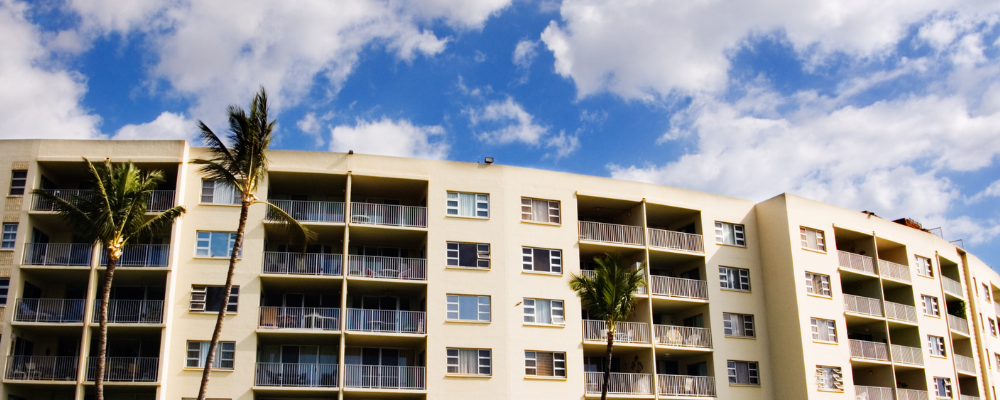
The total costs of owning a vacation home are often more than you think they will be. For example, there can be unforeseen repairs and replacements that need to happen over time, and this can drive costs up quickly. Prepare for the following costs when you’re purchasing a vacation home as an investment property:
- Price of the home which you’ll be paying off with a mortgage for a number of years. Consider your monthly mortgage payment, the interest on this and the down payment.
- There are property taxes on vacation homes, which vary across states. However, these can be a few thousand dollars each year, depending on the state and the value of the home.
- Homeowner’s insurance on a vacation home can be higher than a primary residence. Landlord insurance may also be necessary, so you can factor this into your calculations as well.
- Maintenance and repairs are a large portion of expenses that you’ll need to consider when owning a vacation home. This includes anything from lawn maintenance to roof repairs and painting. These costs can begin at a few hundred dollars and increase to thousands of dollars.
- Property management is a cost to bear in mind for those who aren’t able to manage the rental property Based on the market, a property management company can cost anywhere between 14% to 35%.
- Furnishings are a smaller, but important cost to consider as part of your overall estimates. Décor and furnishings are a necessary part of the home, which may need to be replaced more often as guests typically won’t take good care of these. Take note of this and set aside an amount for it.
Before buying a vacation home, it is important to create an overall budget, factoring in all the costs above. The price of the home is just one of many costs, and you’ll need to figure out what you can afford in terms of purchase price and monthly costs over time.
Final Thoughts - Should you buy or rent a vacation home?
The decision on whether to buy a vacation home as an investment property or rent it instead hinges on each individual’s financial situation, both short-term and long-term. Purchasing a rental property comes with a host of expenses which need to be considered, and these can make or break the deal. It’s also important to note that vacation home sales vary according to each area.
There are also a number of considerations for the long term, which include property management and home repairs, as well as the fact that short-term rental income isn’t consistent. All in all, the choice depends on an investor’s financial situation, time and energy available, as well as vacation preferences.
